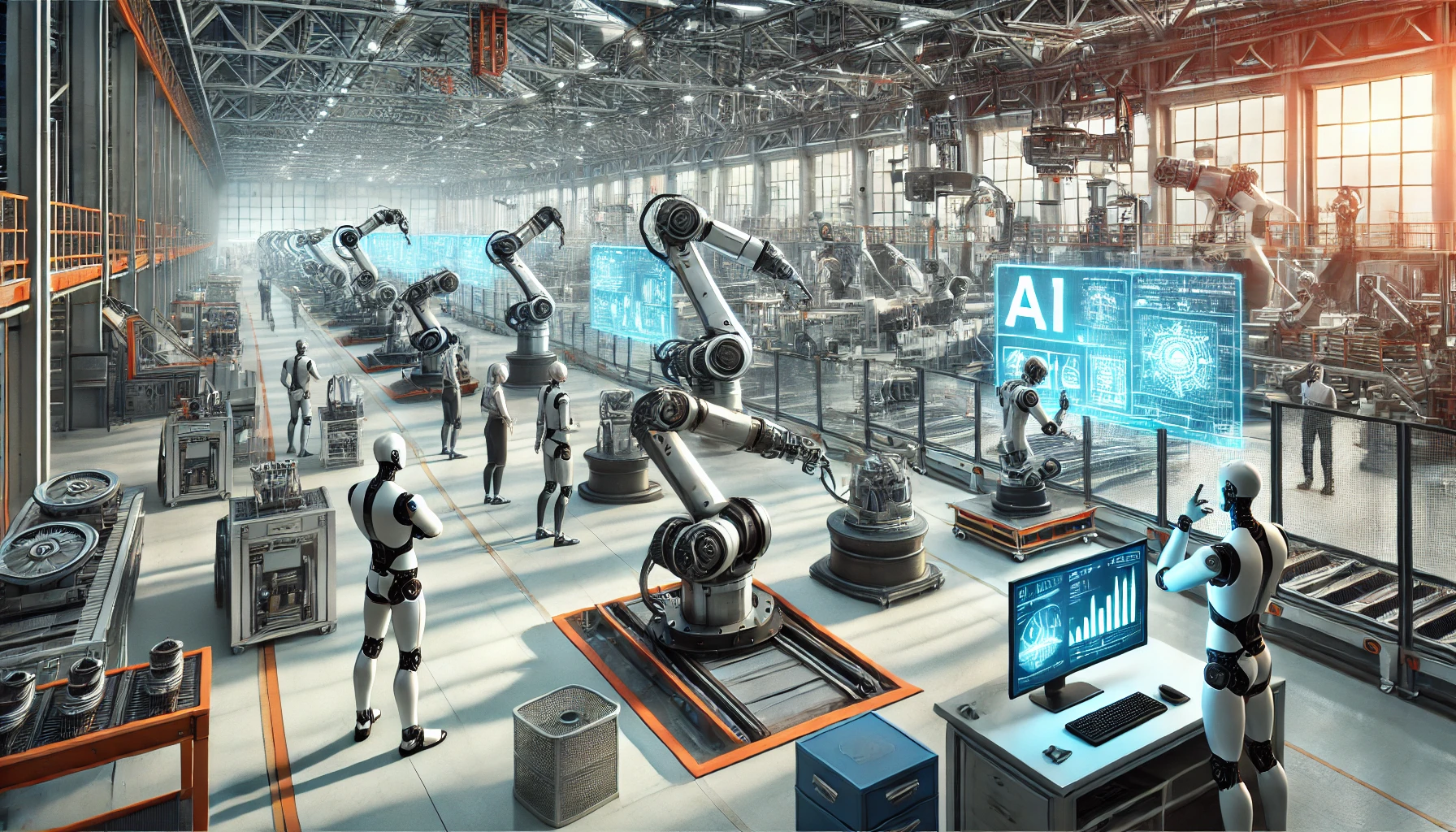The Future of Work: Will Robots Completely Replace Humans in Manufacturing?

The Rise of Robots in Manufacturing
It’s no secret that robots are taking over the manufacturing floor, and they're not shy about it. From assembling cars to packaging food, these metallic maestros are quickly becoming indispensable. But before you panic and start prepping for a robotic coup, let's get the facts straight. Robotics technology has evolved massively, but it’s not all doom and gloom. Many experts argue that robots aren’t here to replace us but to make our jobs easier—or at least, that’s the hope. Automation in manufacturing has been around for decades, with early robots performing repetitive tasks that humans were more than happy to give up. Fast forward to today, and robots are smarter, faster, and sometimes, even a little creepy with their almost human-like precision. But the big question remains: Will they fully replace humans?
AI and Robots: A Dynamic Duo or a Job Killer?
Advancements in artificial intelligence (AI) have certainly made robots more capable. With machine learning, they’re not just following commands—they’re learning on the job. These aren’t your 1980s assembly-line droids; these bots are becoming thinkers. Factories now feature robots capable of adapting to new tasks without needing a human to reprogram them. It’s like giving them a little autonomy, which is both impressive and slightly terrifying. So, are we facing a world where humans are rendered obsolete by our own creations? Not exactly. While robots have become more independent, experts like Martin Ford, author of 'Rise of the Robots,' caution that we’re not quite at the point of full automation. Sure, robots are replacing some jobs, but humans are still needed for oversight, troubleshooting, and let’s face it, making sure the robots don’t unionize.
The Role of Humans: Still Needed or Out of the Picture?
So where do humans fit into this robotic future? As much as we love the idea of lounging while robots do all the work, reality has different plans. Industry experts agree that while robots can take over many tasks, they still lack the creativity and problem-solving skills of humans. Sure, they can weld car parts with laser precision, but ask them to fix a problem when something goes wrong, and they’re lost. We’re talking total meltdown. Jeff Burnstein, president of the Association for Advancing Automation, believes that robots will actually create more jobs, particularly in areas like maintenance, programming, and quality control. Robots may run the factory, but humans are still the ones keeping the lights on—literally and figuratively.
Full Automation: A Dream or a Dystopia?
The dream of full automation has been around since the first robot hit the assembly line, but it’s not as simple as flipping a switch. As technology advances, we might see more and more jobs becoming automated, but a completely human-free factory? That’s still a long way off. Full automation would require not just advanced robotics but also systems that can handle every variable that pops up in a manufacturing environment. And let's be honest—robots aren’t great at dealing with the unexpected. A power outage, a software glitch, or even something as simple as a jammed conveyor belt can send them into a tailspin. Experts like Erik Brynjolfsson, co-author of 'The Second Machine Age,' suggest that while automation will continue to grow, there will always be a role for humans to play. Whether it’s overseeing the robots or innovating new ways to use them, we’re not out of the picture yet.
So, Will Robots Completely Replace Humans?
Now for the big question: Are robots going to take all our jobs? The answer, according to most industry insiders, is a resounding no. Robots will continue to evolve, and yes, they’ll take on more tasks, but the idea that humans will be entirely replaced is more science fiction than reality. In fact, the rise of robots could lead to more specialized jobs for humans. Instead of doing the heavy lifting, humans could focus on higher-level tasks like programming, design, and innovation. So, if you’re in the manufacturing world, maybe don’t dust off that resume just yet. The future of work will likely be a partnership between humans and robots, with each playing to their strengths. And who knows? Maybe one day we’ll even have robots writing articles like this one. But until then, you’ve got me.
What Do You Think?
Will robots continue to revolutionize manufacturing, or will there always be a need for human ingenuity on the factory floor? Let us know your thoughts!



